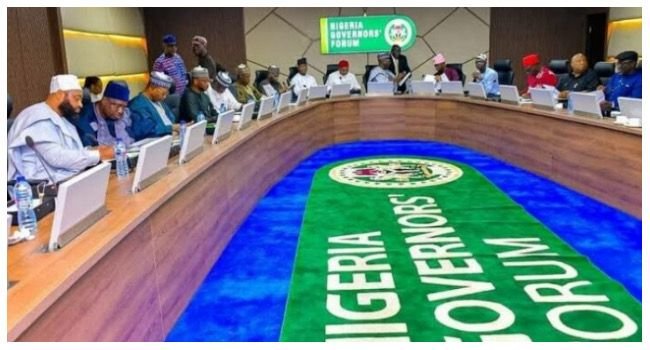THE United States Embassy in Nigeria has taken a swipe at Nigerian governors for their alleged wasteful spending on luxury government buildings, even as millions of citizens continue to face crushing economic hardship and hunger.
In a special investigative report published by The Africa Report, titled “Nigeria’s Ruling Class Splashes Billions on Government Houses”, sighted by News Point Nigeria, the US Embassy details how state governors across Nigeria are spending billions of naira on palatial residences and offices while the populace grapples with inflation, unemployment, and hunger.
“Such alleged lack of fiscal responsibility fuels inequality and erodes public trust,” the embassy, quoting accountability advocacy groups cited in the report.
The report highlights a disturbing contrast between the lifestyles of Nigeria’s political elite and the daily struggles of ordinary citizens, many of whom have been plunged into deeper poverty by lack of quality leadership at state levels.
“While Nigerians are tightening their belts, the same cannot be said of the ruling class,” the report states.
It cited several controversial examples:
In Oyo State, Governor Seyi Makinde’s administration reportedly approved a staggering ₦63.4 billion for the renovation of the state’s Government House. Officials justified the cost by claiming the structure was “an embarrassment” and “unbefitting.”
In Gombe State, one of the poorest in Nigeria, Governor Inuwa Yahaya has committed ₦14.9 billion to construct a new ultra-modern governor’s residence. An additional ₦14.23 billion is being spent on a new House of Assembly complex.
The criticism comes at a time when economic conditions are worsening for the average Nigerian, largely due to fuel subsidy removal, currency devaluation, and rising food and transport costs.
According to the World Bank’s April 2025 Poverty and Equity Brief, rural poverty has surged to 75.5%, placing Nigeria among countries with the highest levels of economic disparity.
The report also notes that: Nigeria’s Prosperity Gap defined as the average factor by which personal income must rise to achieve a minimum prosperity standard of $25/day is now 10.2, one of the worst globally.
Headline inflation hit 22.22% in June 2025, with food prices increasing even faster than general inflation, according to the National Bureau of Statistics (NBS).
Civil society groups and transparency advocates quoted in the report warn that such glaring fiscal irresponsibility is not just wasteful, it is dangerous.
“These kinds of expenditures erode citizens’ trust in government and fuel resentment and unrest,” said one analyst.
They argue that governors’ priorities appear detached from the needs of the people, especially in a country where millions are living below the poverty line and basic services such as education, healthcare, and security remain underfunded.
Nigerians have taken to social media to express outrage over the revelations, calling on the federal government, anti-corruption agencies, and international partners to demand transparency and accountability in the management of state resources.
“How can leaders spend billions on buildings while hospitals have no drugs and children learn under trees?” asked a user @bibliking on X.
Others have called on the National Assembly and watchdog institutions like the Economic and Financial Crimes Commission (EFCC) and the Independent Corrupt Practices Commission (ICPC) to probe the contracts and ensure public funds are not being siphoned under the guise of infrastructural development.
As of the time of filing this report, none of the governors mentioned in the report had issued a formal response to the allegations.
However, analysts warn that silence or dismissive responses could further damage public confidence in political leadership, especially as Nigeria prepares for the 2027 general elections.







